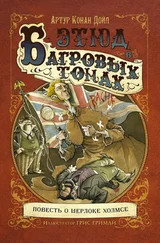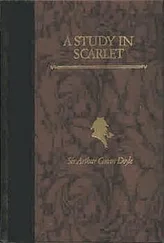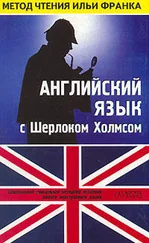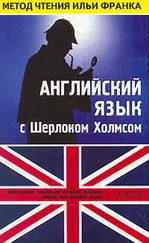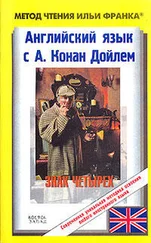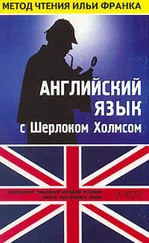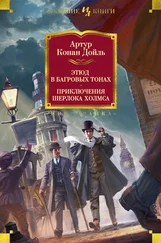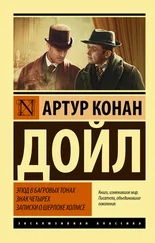endeavour [In'dev@], design [dI'zaIn], sinewy ['sInju:I]
She had reached the outskirts of the city when she found the road blocked by a great drove of cattle, driven by a half-dozen wild-looking herdsmen from the plains. In her impatience she endeavoured to pass this obstacle by pushing her horse into what appeared to be a gap. Scarcely had she got fairly into it, however, before the beasts closed in behind her, and she found herself completely imbedded in the moving stream of fierce-eyed, long-horned bullocks. Accustomed as she was to deal with cattle, she was not alarmed at her situation, but took advantage of every opportunity to urge her horse on in the hopes of pushing her way through the cavalcade. Unfortunately the horns of one of the creatures, either by accident or design, came in violent contact with the flank of the mustang, and excited it to madness. In an instant it reared up upon its hind legs with a snort of rage, and pranced and tossed in a way that would have unseated any but a most skilful rider. The situation was full of peril. Every plunge of the excited horse brought it against the horns again, and goaded it to fresh madness. It was all that the girl could do to keep herself in the saddle, yet a slip would mean a terrible death under the hoofs of the unwieldy and terrified animals. Unaccustomed to sudden emergencies, her head began to swim, and her grip upon the bridle to relax. Choked by the rising cloud of dust and by the steam from the struggling creatures, she might have abandoned her efforts in despair, but for a kindly voice at her elbow which assured her of assistance. At the same moment a sinewy brown hand caught the frightened horse by the curb, and forcing a way through the drove, soon brought her to the outskirts.
"You're not hurt, I hope, miss," said her preserver, respectfully (надеюсь, вы не пострадали, мисс, — вежливо сказал ее спаситель) .
She looked up at his dark, fierce face, and laughed saucily (она подняла голову, посмотрела на его смуглое энергичное лицо и весело рассмеялась; fierce — жестокий, свирепый; живой, энергичный; saucy — дерзкий; веселый, живой; /уст./ относящийся к соусу; соусообразный; sauce — соус) . "I'm awful frightened," she said, naively (= I'm awfully frightened: я ужасно напугана, — наивно сказала она) ; "whoever would have thought that Poncho would have been so scared by a lot of cows (кто бы мог подумать, что Пончо может так напугаться толпы: «множества» коров) ?"
"Thank God you kept your seat," the other said earnestly (слава Богу, вы удержались в седле, — серьезно сказал тот; seat — сиденье) . He was a tall, savage-looking young fellow (это был высокий молодой парень дикого вида) , mounted on a powerful roan horse (верхом на крупной лошади чалой масти; powerful — крепкий, могучий; roan — чалый [16] Серый с примесью другого цвета.
) , and clad in the rough dress of a hunter (одетый в грубую охотничью одежду) , with a long rifle slung over his shoulders (с длинной винтовкой, переброшенной через плечо) . "I guess you are the daughter of John Ferrier," he remarked (наверное, вы дочь Джона Феррьера, — заметил он) , "I saw you ride down from his house (я видел, как вы выезжали из его дома) . When you see him, ask him if he remembers the Jefferson Hopes of St. Louis (когда увидите его, спросите, помнит ли он Джефферсона Хоупа из Сент-Луиса) . If he's the same Ferrier, my father and he were pretty thick (если это тот самый Феррьер, мой отец и он были довольно близкими приятелями; pretty — довольно, достаточно, в значительной степени; thick — близкий, неразлучный) ."
"Hadn't you better come and ask yourself?" she asked, demurely (может, вам лучше зайти и спросить самому, — рассудительно спросила она; demure —скромный, спокойный; рассудительный) .
preserver [prI'z@:v@], saucily ['sO:sIlI], demurely [dI'mju@lI]
"You're not hurt, I hope, miss," said her preserver, respectfully.
She looked up at his dark, fierce face, and laughed saucily. "I'm awful frightened," she said, naively; "whoever would have thought that Poncho would have been so scared by a lot of cows?"
"Thank God you kept your seat," the other said earnestly. He was a tall, savage-looking young fellow, mounted on a powerful roan horse, and clad in the rough dress of a hunter, with a long rifle slung over his shoulders. "I guess you are the daughter of John Ferrier," he remarked, "I saw you ride down from his house. When you see him, ask him if he remembers the Jefferson Hopes of St. Louis. If he's the same Ferrier, my father and he were pretty thick."
"Hadn't you better come and ask yourself?" she asked, demurely.
The young fellow seemed pleased at the suggestion (казалось, молодому человеку понравилось предложение) , and his dark eyes sparkled with pleasure (и его темные глаза заискрились от удовольствия) . "I'll do so," he said (так и сделаю, — сказал он) , "we've been in the mountains for two months (мы два месяца были в горах) , and are not over and above in visiting condition (и не совсем в том состоянии, чтобы наносить визиты; over and above — слишком, чересчур: «над и сверх») . He must take us as he finds us (ему придется принять нас такими, какие мы есть) ."
"He has a good deal to thank you for, and so have I (он многим вам благодарен, так же как и я) ," she answered, "he's awful fond of me (он во мне души не чает: «он ужасно любит меня») . If those cows had jumped on me he'd have never got over it (если бы те коровы прошлись бы по мне, он никогда бы этого не пережил; to jump — прыгать) ."
"Neither would I," said her companion (и я тоже, — сказал ее собеседник) .
"You (вы) ! Well, I don't see that it would make much matter to you, anyhow (ну, уж не понимаю, какая вам была бы разница: «что это бы сделало большую разницу для вас в любом случае») . You ain't even a friend of ours (вы даже не наш друг) ."
The young hunter's dark face grew so gloomy over this remark that Lucy Ferrier laughed aloud (смуглое лицо молодого охотника так омрачилось при этих словах: «при этом замечании», что Люси Феррьер громко рассмеялась; gloomy — угрюмый, печальный) .
"There, I didn't mean that (да ладно, я не всерьез; to mean — думать, подразумевать) ," she said; "of course, you are a friend now (конечно, теперь вы наш друг) . You must come and see us (непременно приходите к нам в гости: «вы должны прийти и повидать нас») . Now I must push along (а теперь мне пора ехать; to push along — уходить: «толкать/двигать вдоль») , or father won't trust me with his business any more (а то отец больше ничего мне не доверит: «не доверит мне свои дела больше») . Good-bye (до свиданья) !"
Читать дальше

